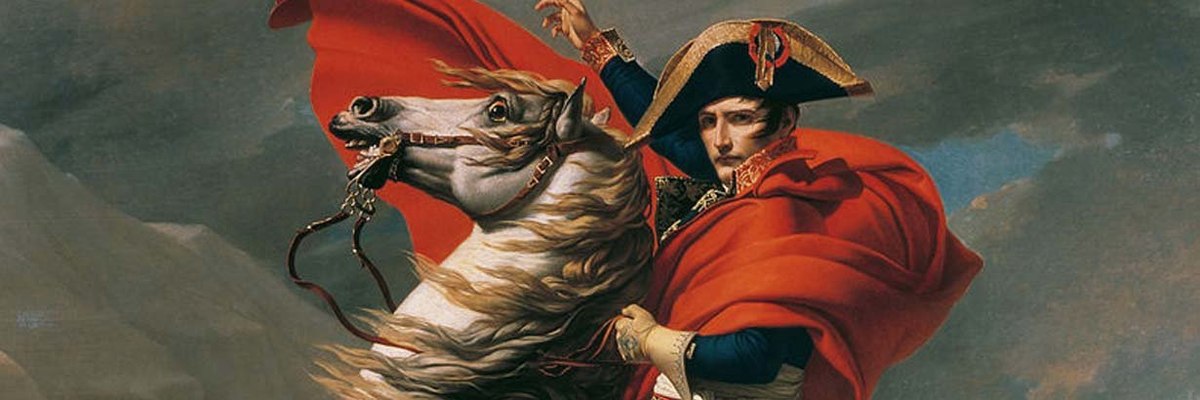The new Hollywood film "Napoleon" is releasing this week to an American public that doesn't know much about Napoleon Bonaparte, and doesn't particularly like what it does know about the 19th century French emperor.
Half (50%) of all U.S. adult citizens say they know "not very much" about Napoleon Bonaparte. Another 5% say they've never heard of him. Just 8% know "a great deal" about Napoleon — often referred to only by his first name — while 36% say they know "a fair amount" about him.
Men are more likely than women to say they know about Napoleon. Younger adults and people with college degrees also claim more knowledge about Napoleon, who conquered much of Europe on the battlefield and imposed legal reforms that linger to this day.
Overall, 19% of Americans say they have a very or somewhat favorable opinion of Napoleon, while 38% have a very or somewhat negative opinion of him. That puts Napoleon just ahead of another historical conqueror, Genghis Khan (14% favorable, 42% unfavorable), and less well-liked than two other conquering autocrats: Alexander the Great (33% favorable, 19% unfavorable) and Julius Caesar (25% favorable, 27% unfavorable).
Napoleon is better-liked than two infamous 20th century dictators, Joseph Stalin (11% favorable, 65% unfavorable) and Adolf Hitler (9% favorable, 81% unfavorable).
Americans' views of Napoleon are middle-of-the-pack compared to Europeans'
YouGov also asked adults in seven European countries their views of Napoleon.
Unsurprisingly, Napoleon is best-known and best-liked in his home country of France, though even there he's not uncontroversial. 72% of French people say they know at least "a fair amount" about Napoleon, and 34% have a favorable opinion of Napoleon compared to 22% unfavorable.
Americans are less likely than Germans or Italians to say they know about Napoleon: Majorities of adults in Germany and Italy say they know at least a fair amount about the French emperor. But Americans are more likely than Swedes, Britons, or Danes to say they know about Napoleon.
Similarly, while Americans have a more negative opinion of Napoleon than the French and Italians do, they're more likely to have a favorable opinion of him than are people in Germany, Sweden, or Great Britain.
Ambitious, authoritarian, and short: How Americans describe Napoleon
When asked to pick up to three phrases they associate with Napoleon from a list of 12 options, Americans are most likely to call him ambitious, authoritarian, and physically short. (While Napoleon has often been depicted as a short man, he appears to have been around 5 feet, 7 inches tall, which was average or above-average for French men at his time.)
Americans who say they know at least a fair amount about Napoleon are much more likely than less-informed Americans to describe Napoleon as ambitious and as a great general
Americans are less likely than the French to describe Napoleon as ambitious, authoritarian, visionary, and a great administrator. They're more likely than the French to describe him as short, tyrannical, and a warmonger.
A complicated legacy
There's no consensus in the U.S. about what kind of legacy Napoleon left as a world leader. 18% say his legacy is either more positive than negative or entirely or almost entirely positive, while 31% say his legacy is either more negative than positive or entirely or almost entirely negative. Another 24% say Napoleon's legacy was mixed.
Out of eight countries surveyed by YouGov, Americans are the most likely to say Napoleon's legacy is negative. That includes Spain and Great Britain, which spent years at war with Napoleon.
The French have the most positive view of Napoleon's legacy, with 37% describing it as positive, 27% as equally positive and negative, and 10% as negative.
In the U.S., younger adults and people with college degrees are less likely to have a negative view of Napoleon's legacy. Older Americans and liberals are more likely to have a negative view of Napoleon's legacy.
In France, supporters of left-wing parties are more likely to have negative views of Napoleon.
The 8% of Americans who say they know a great deal about Napoleon are about twice as likely to have a favorable than unfavorable opinion of his legacy.
— Matthew Smith contributed to this article
Related:
- How does Europe remember Napoleon?
- Men do spend more time than women thinking about the Roman Empire — and World War II
See the results for this YouGov poll
Methodology: This poll was conducted online on October 27 - November 2, 2023 among 1,000 U.S. adult citizens. Respondents were selected from YouGov’s opt-in panel using sample matching. A random sample (stratified by gender, age, race, education, geographic region, and voter registration) was selected from the 2019 American Community Survey. The sample was weighted according to gender, age, race, education, 2020 election turnout and presidential vote, baseline party identification, and current voter registration status. Demographic weighting targets come from the 2019 American Community Survey. Baseline party identification is the respondent’s most recent answer given prior to November 1, 2022, and is weighted to the estimated distribution at that time (33% Democratic, 31% Republican). The margin of error for the overall sample is approximately 4%.
Image: Getty











